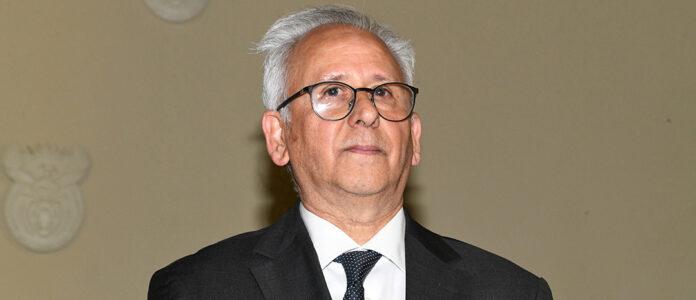The South African Police Service (SAPS) has recorded only four cases of infant trafficking in the past five years. This was revealed by the Acting Minister of Police, Firoz Cachalia in parliament.
Cachalia confirmed that the Directorate for Priority Crime Investigation (DPCI), also known as the Hawks, does keep records of all trafficking in persons (TIP) cases, including those involving infants.
Only four cases recorded in three provinces
“The DPCI has a record of four infants that have been victims of human trafficking, from February 2020 to date. All four cases were reported to SAPS and investigated by the DPCI. In each instance, the infants were relinquished by their biological mothers.
“The four cases were recorded in three provinces: Eastern Cape (one) Gauteng (one) and Free State (two). No cases were linked to baby savers, baby boxes, or registered child protection organisations,” said Cachalia.
He further noted that the Prevention and Combating of Trafficking in Persons Act only came into effect on August 9 2015. And as such, the SAPS does not hold records of trafficking cases prior to that date.
Democratic Alliance MP, Bridget Masango, told Sunday World that the figures are low. However, they but consistent with global trends, she added.
Mostly older children affected
“The numbers provided by the acting minister appear low. But they are broadly consistent with what credible international organisations such as the Global Initiative Against Transnational Organised Crime (GITOC) have indicated for South Africa.
“Recorded cases of infant trafficking are rare. And when trafficking does occur, it generally involves older children, particularly adolescents.
“GITOC’s most recent assessments show that the highest-risk cohorts are teenagers, not infants. And that trafficking dynamics are typically linked to runaways, vulnerable youth, and long-standing exploitation markets. Rather than newborn relinquishment.
“Infant trafficking is not occurring at a scale that justifies blanket opposition to baby savers,” said Masango.
She said that “baby savers provide a safe, regulated alternative to unsafe abandonment, which is a documented and persistent problem in South Africa”. Nothing in the SAPS or DPCI response suggests that baby savers play any role in trafficking networks.
“In fact, the minister confirmed that none of the four recorded cases involved baby savers or registered organisations.
Trafficking risks
“South Africa faces far more significant trafficking risks involving toddlers and older children. Typically linked to sexual exploitation, ‘blessers’, organised crime groups, gang structures, and cross-border exploitation.
“Adolescents remain the primary group targeted, which is consistent with GITOC’s findings across southern Africa,” said Masango. She added that these patterns underscore that the real trafficking threat emerges years later. They do not emerge at the point of infant relinquishment.
“From an evidence-based perspective, it would be inaccurate to suggest that baby savers drive trafficking,” she said.



